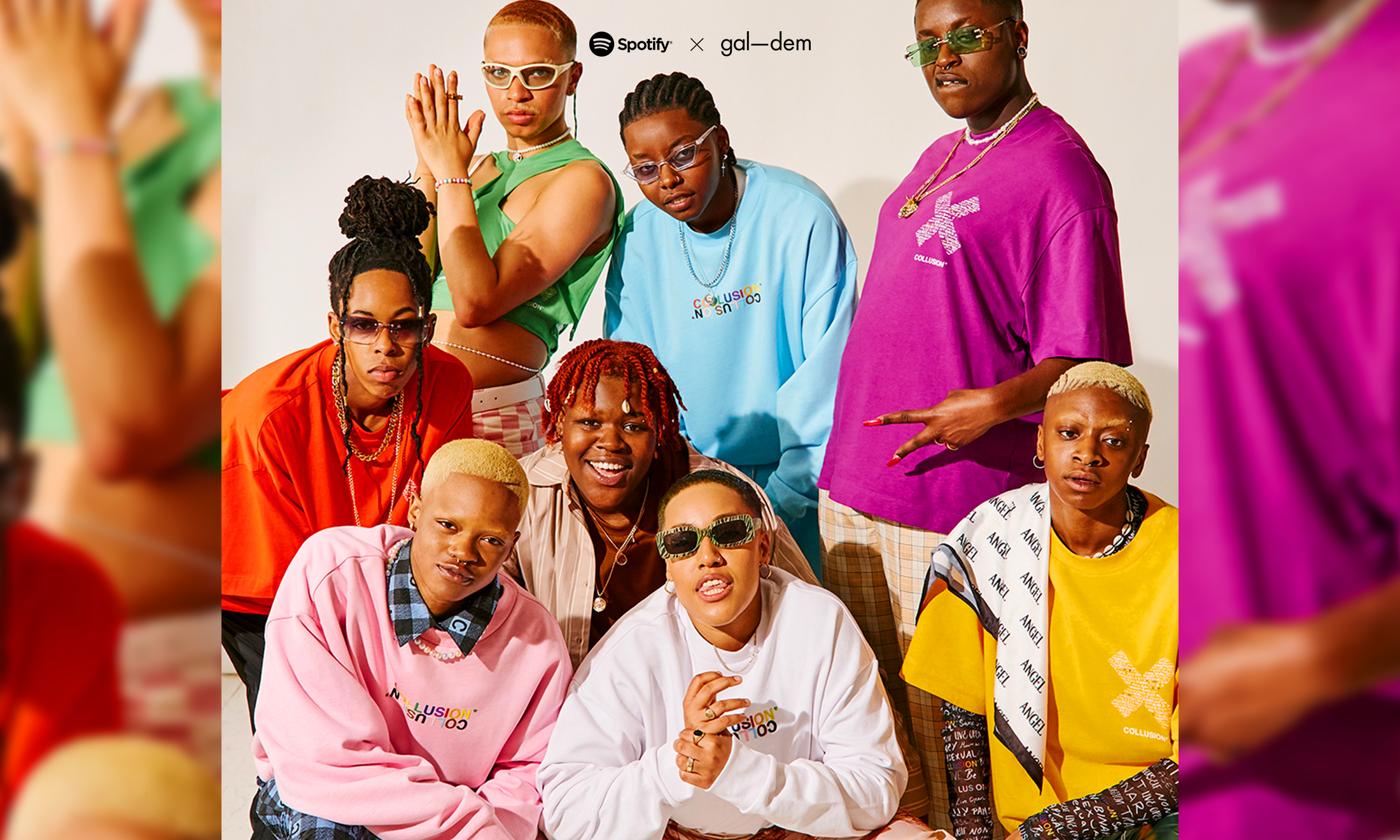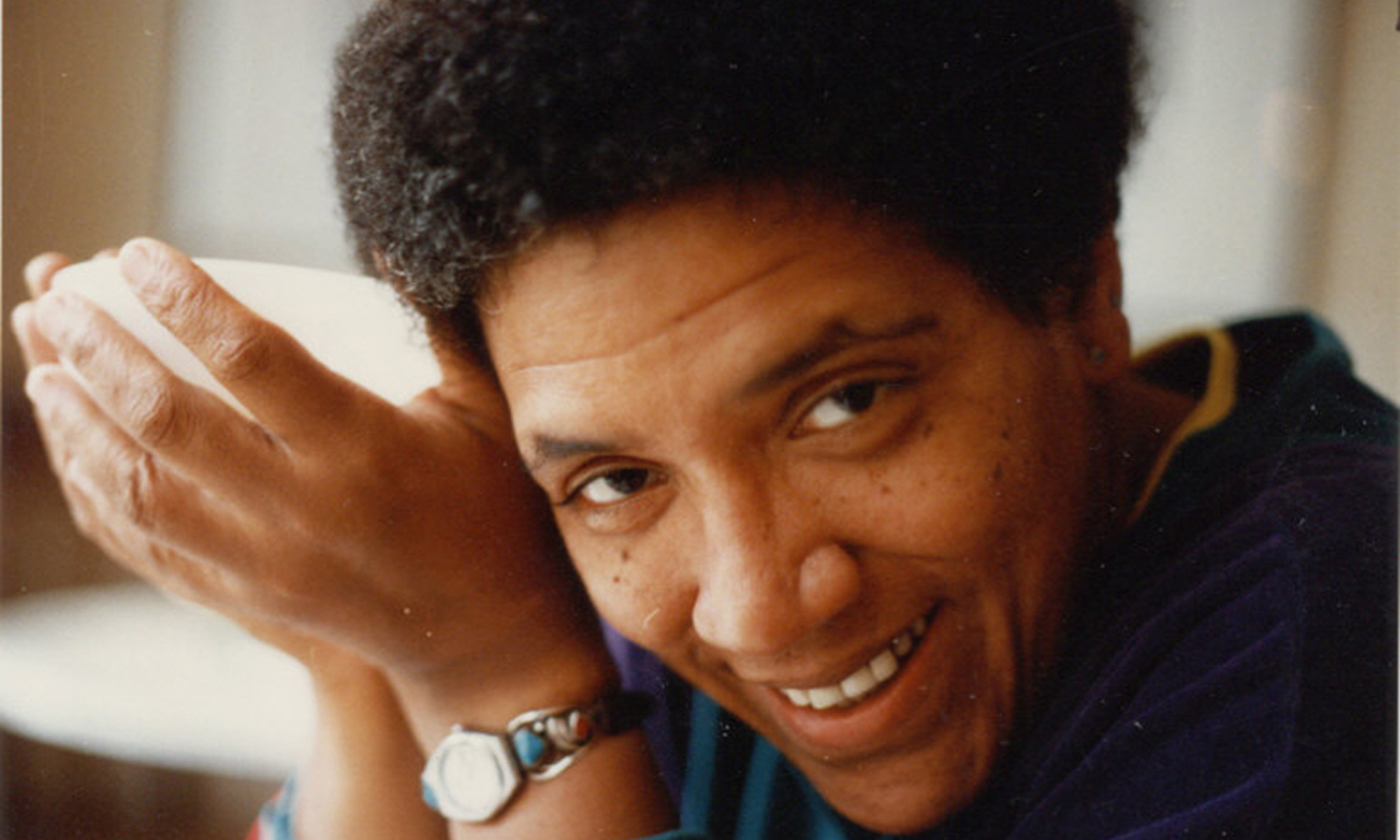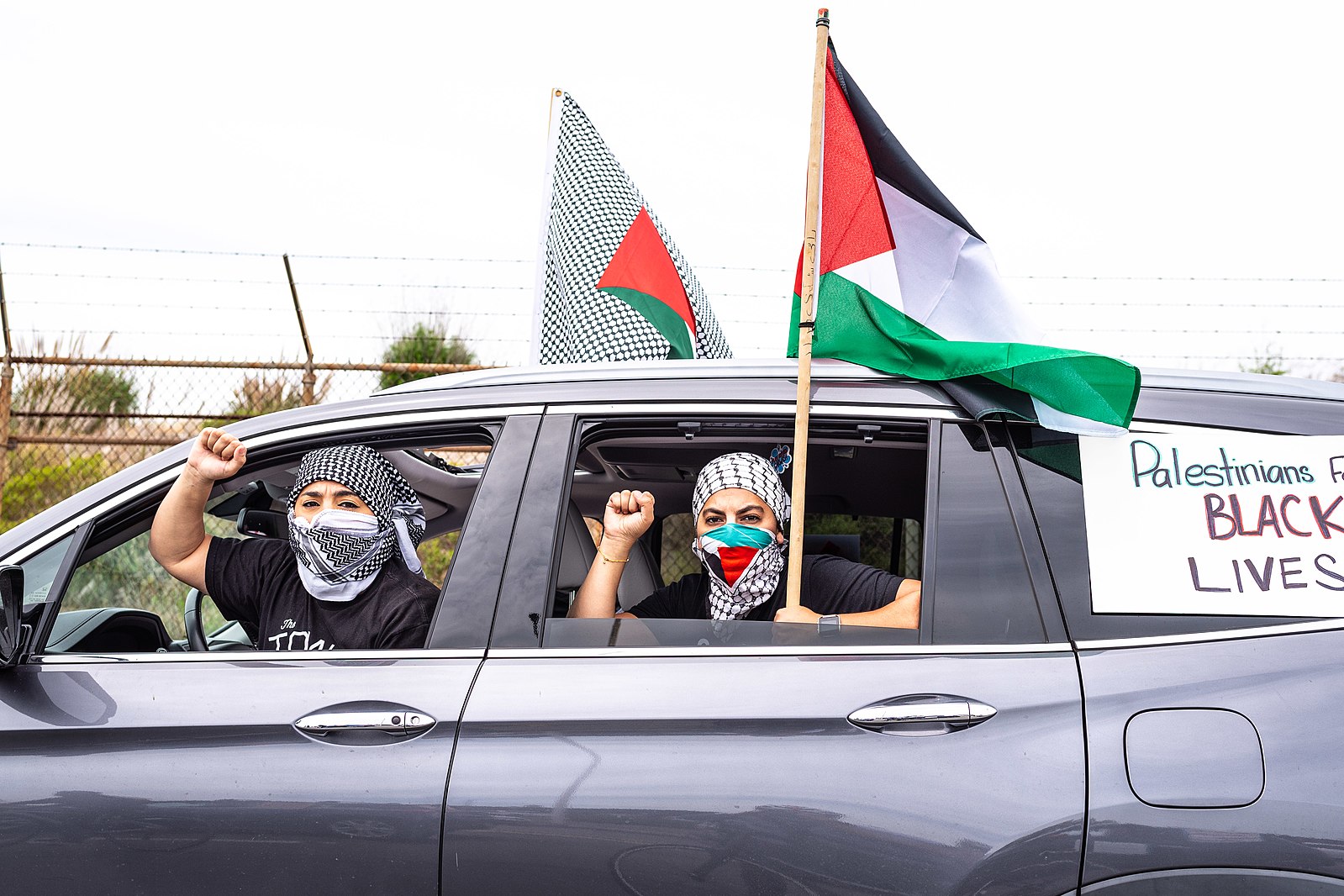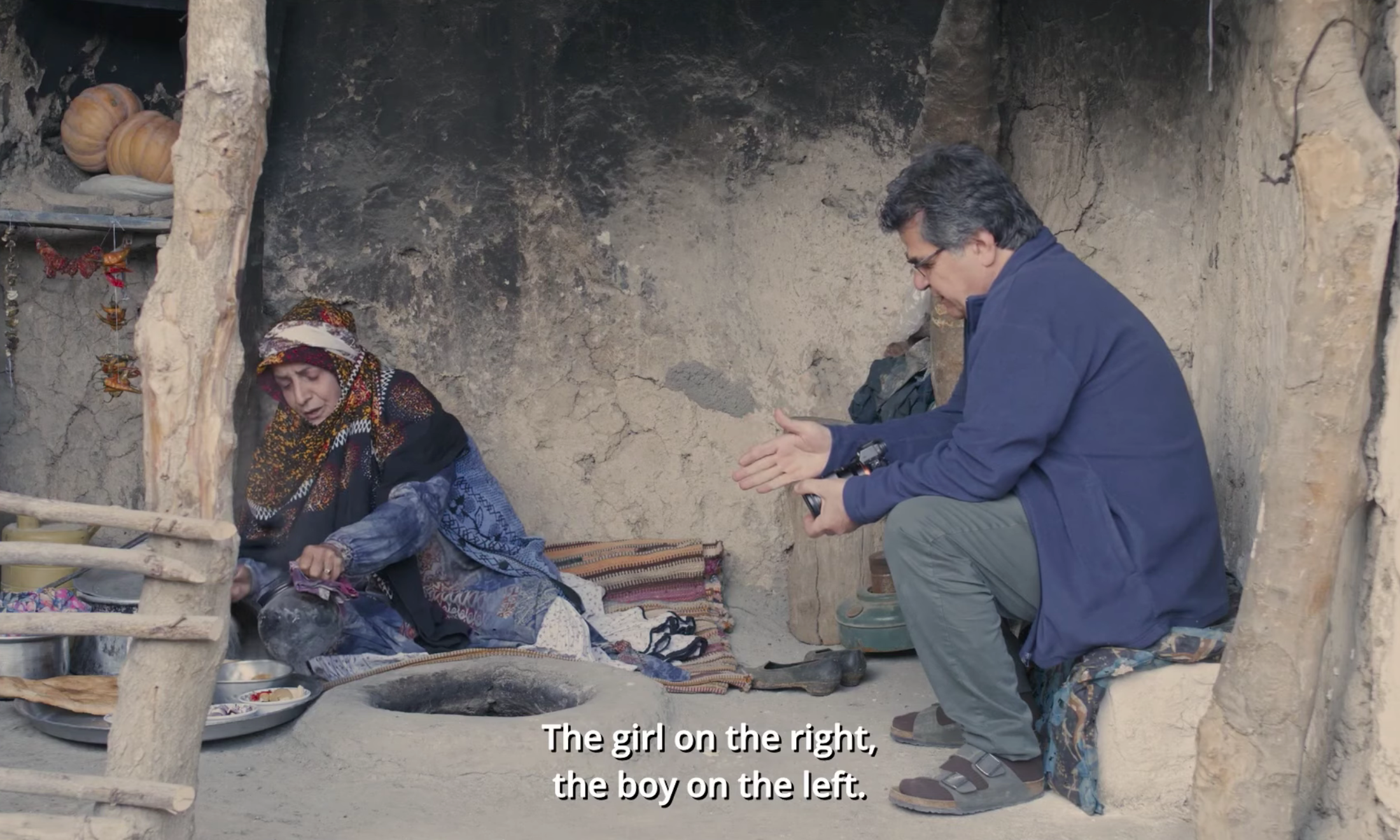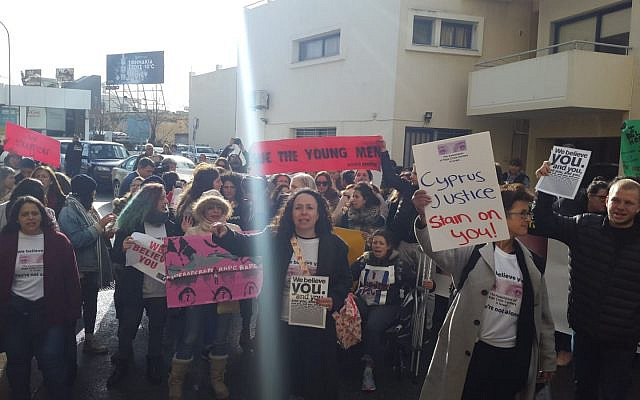
Ayia Napa: ‘Why I flew from Israel to support the woman accused of lying about her rape’
Dr Elana Sztokman explains what led a group of strangers to fly to a country they'd never been to, in defence of a woman they'd never met.
Elana Sztokman
21 Jan 2020
All imagery: Elana Sztokman
Trigger warning: mentions of rape and sexual assault
On 6 January 2020, over 70 Israelis boarded flights to Ayia Napa, to protest the sentencing of a 19-year-old British woman who was convicted of lying about being raped by 12 Israeli men by a Cypriot court. Dr Elana Sztokman was one of the women who made the trip.
It’s hard to pin down exactly when I decided to do something. I’d been following the case very closely from the beginning; it caught my attention because the boys involved were Israeli and the details that trickled out were horrifying: gang rape, by 12 individuals. And that was brutal enough on its own. But when the police announced they were looking at the case as a fabrication, it shocked me. It was clear it wasn’t right; there was physical evidence, the survivor had reported the assault right away.
But what was really jarring was when the accused returned to Israel and were greeted by their families. They celebrated in the airport, sang religious songs, put on skullcaps and tried to make themselves out to be pious. You don’t celebrate when you hurt someone. You apologise.
The whole thing was extremely hard to witness. I was overwhelmed with helplessness of it all. That girl had gone to report a rape and she’d ended up in jail, in a foreign country. But what on earth I could do except scream to the world via social media that I thought this was wrong? Then Professor Ruhama Weiss – my former teacher – posted that she was going to Ayia Napa to protest and it was like water in a desert. Within an hour I’d bought a ticket.
“We’re in the middle of a terrible moment, politically, socially, for women. But the feeling of being able to direct some of that energy towards action was hugely powerful”
Ruhama organised us over the next few days in a WhatsApp group. When I joined, there were about 20 people and by the time I left, it was 150 strong. Ninety five per cent of us were strangers and most of the women on my flight were in their twenties; I was one of the few who wasn’t. The energy was incredible, even before we boarded the plane, furious and frenetic. It was made more powerful by the fact I’m currently in the midst of launching a brand new women’s political party in Israel, Kol Hanashim, the Voice of Women which we founded in December in large part to address issues like this one.
So it felt like both strands were coming together, this righteous fury and moment of change. Women just coming out of the woodwork to say “I’m in”. Make no mistake, we’re in the middle of a terrible moment, politically, socially, for women. But the feeling of being able to direct at least some of that energy towards action, was hugely powerful. We are grabbing onto opportunities to fight back.
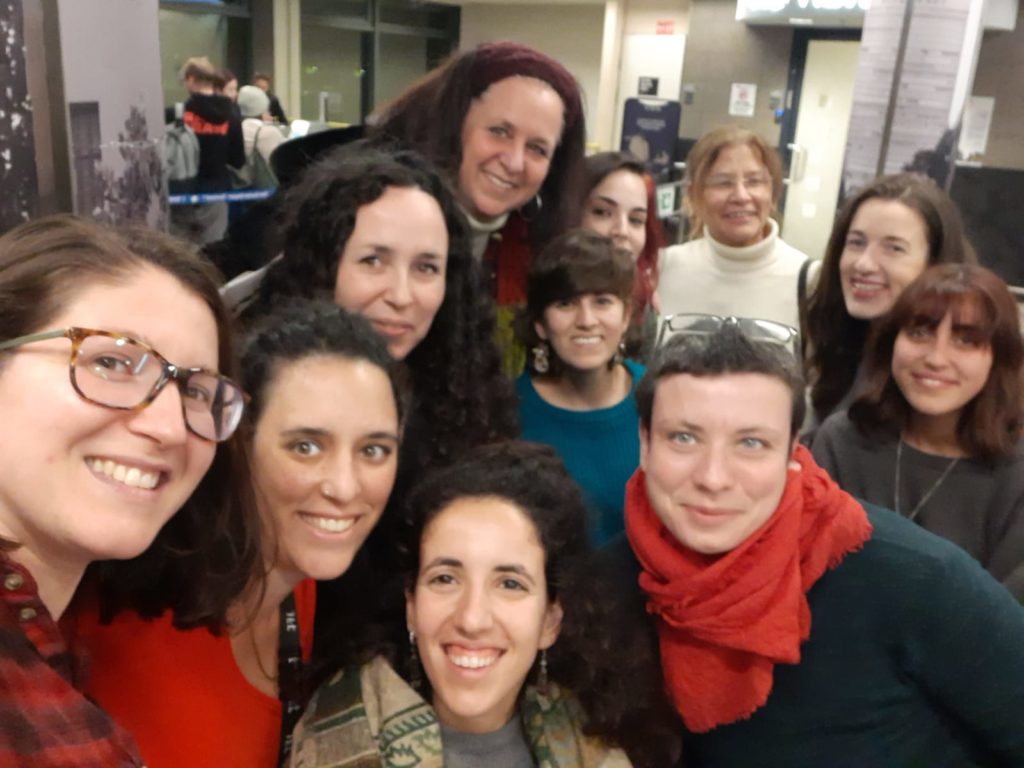
Most of us flew from Israel, although some came from where they were scattered across Europe. Some women were scared to give their names. We also knew there would be survivors of sexual trauma among us and that this action could be hugely triggering for them. The organizers were aware of the sacrifices that had been made for them to be here, and Ruhama asked me to conduct a meditation on the morning of the protest specifically for providing the emotional tools to handle what we were about to face.
The flight was an hour-long; we landed the night before the sentencing and spent some time eating together, sharing our stories, talking about why we were there while also meeting up with members of the Cypriot women’s groups we’d been organising with. Before I arrived, the mother of the survivor visited our group and thanked us for coming out. I heard she talked about the common threads that bound us as women, the solidarity that extends across nations. It was very moving but very tough.
“We spoke about why we, a group of women from Israel, were here to speak up in defense of a woman who lived thousands of miles away”
Going to our hotel was hard. I hadn’t been aware of Ayia Napa’s reputation, as a place where lots of boys come from around the world thinking there’s free sex on tap. I suddenly understood this was a place where boys arrived with an expectation and how the consequences of that expectation had led to us being there. One of the women in our group said she didn’t want to go into the hotel, knowing it was a space seeped in these skewed sexual politics. I didn’t get much sleep that night, in my poky room that stank of cigarette smoke.
The courthouse was in session from 9am the next day, so we woke early. In the meditation I led, I talked about protecting ourselves from triggers but as a community, finding our connection to each other and why we, a group of women from Israel, were here to speak up in defense of a woman who lived thousands of miles away. And then we were off.
The scene outside the courthouse was very intense; we set up underneath the window. We’d already prepared our placards and signs but suddenly we realised: we hadn’t agreed on any chants. So we had to come up with some on the spur of the moment, and simple ones because for many of our group, English was their second language. But we decided on ones that said things like “No means no” and translated a really powerful Hebrew anti-sexual chant into English. My favourite chants were “Jail the rapist, not the victim,” and “We believe you,” because those were the most important messages. They were very simple but they were what we wanted to convey.
“There’s been backlash; some activists have received death threats from the accused boy”
Afterwards, the defendant’s lawyer told us that the girl smiled when she heard these chants. They also said that, in their opinion, it was hearing the noise we were making outside that prompted the judge to hand out a suspended sentence, rather than four months to be served in actual prison. Apparently the ruckus kept interrupting him; he had to shout to be heard over us. I guess the judge-shaming worked.
Returning to Israel, we’ve certainly felt backlash. Some of the activists have been receiving death threats from the accused boys and their families, terrifying promises to come and burn down their houses. And others have struggled with the secondary trauma that the case has stirred. Seeing an entire system that doesn’t believe someone – police, judges, media – even though they have evidence. Twelve condoms. Thirty-five bruises on her body. Expert testimony saying she was assaulted. And still she wasn’t believed. And that’s very traumatic for people who’ve experienced similar assaults.
There are the sparks of change here; in December 2018 100,000 women lined the streets to protest the murder of a young woman. The atmosphere then was frenetic and urgent and I felt the same energy outside that courthouse in Cyprus. We need to keep that going; get women into the halls of government, get them out on the street, keep up the momentum. What happened in Ayia Napa is not over; a girl was still sentenced for a crime I believe she is innocent of. There’s an appeal to fight. And that case is just one part of a much larger puzzle. Cyprus showed me just a tiny piece of what it will take as women to push back against an entire system geared to keep us down, is terrifying. But it feels like we are starting to flex our might.
As told to Moya Lothian-McLean.

